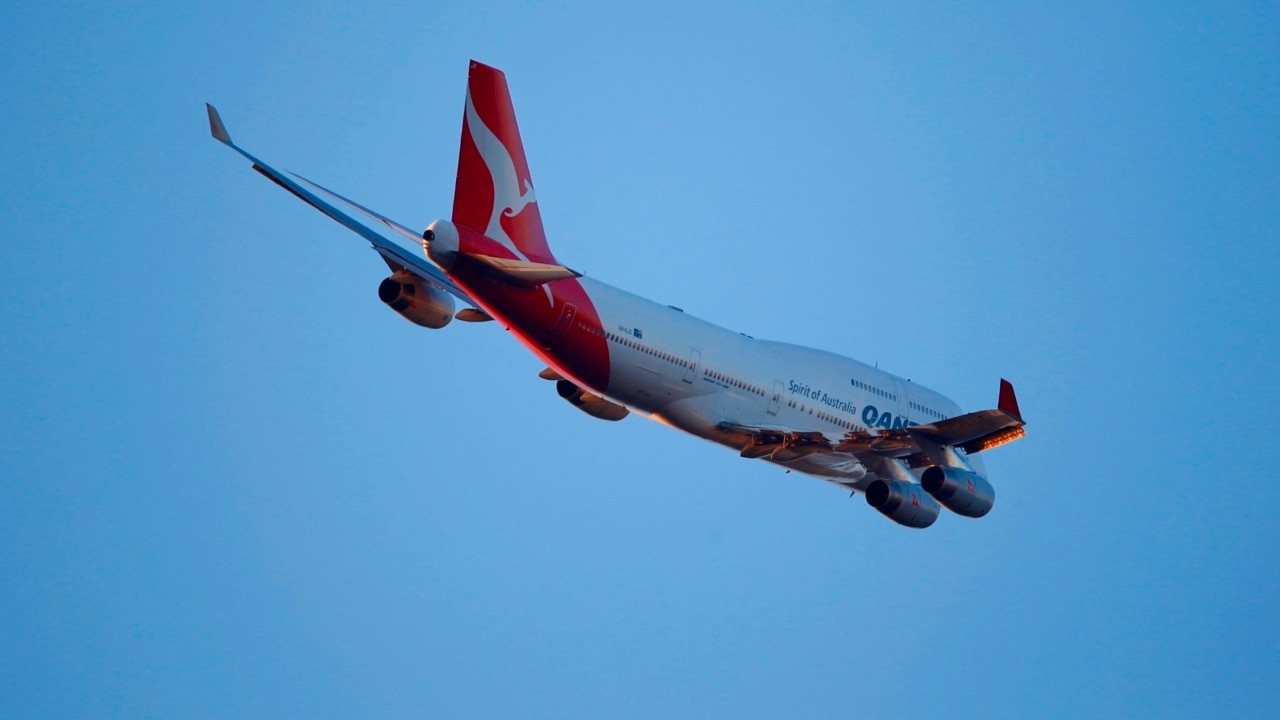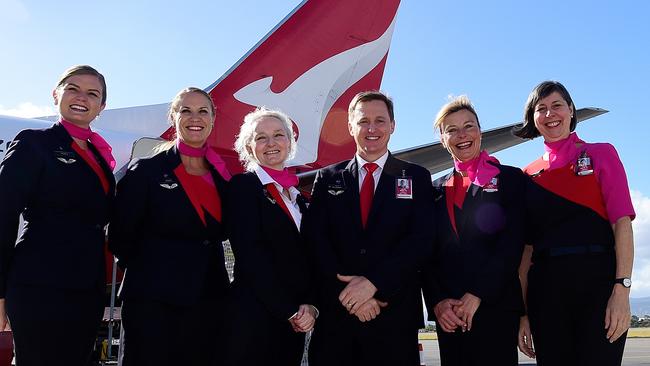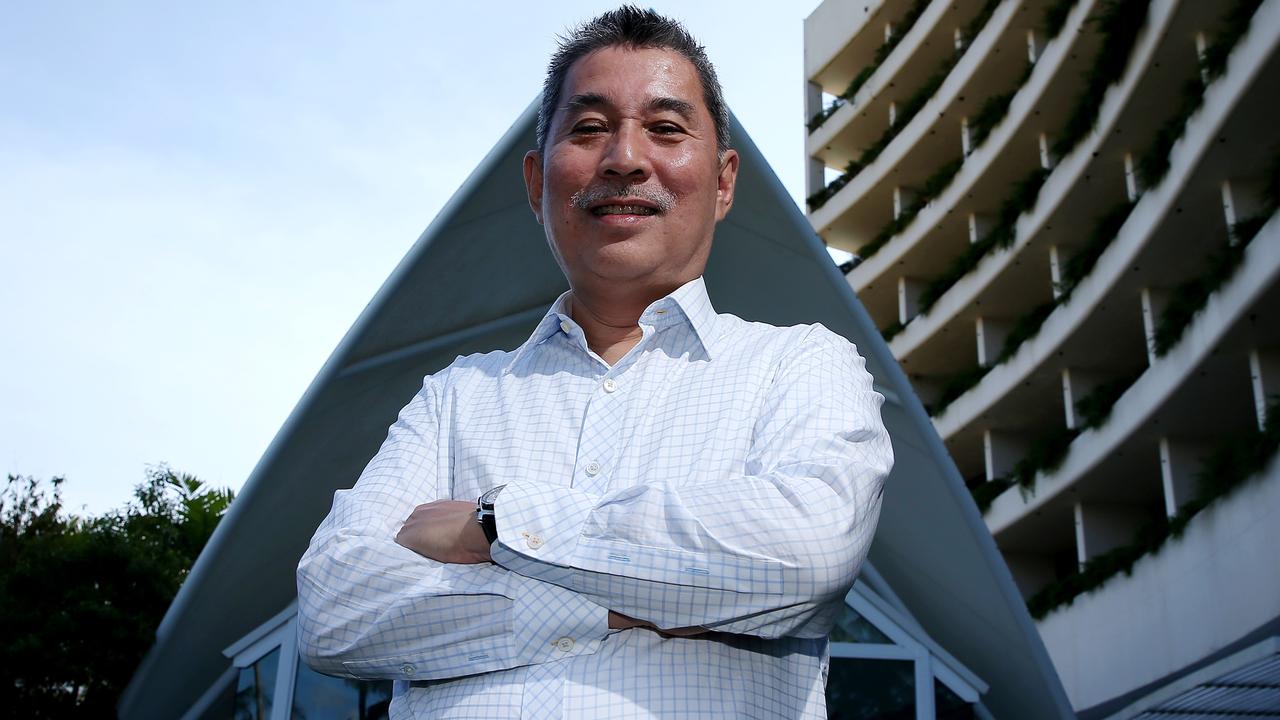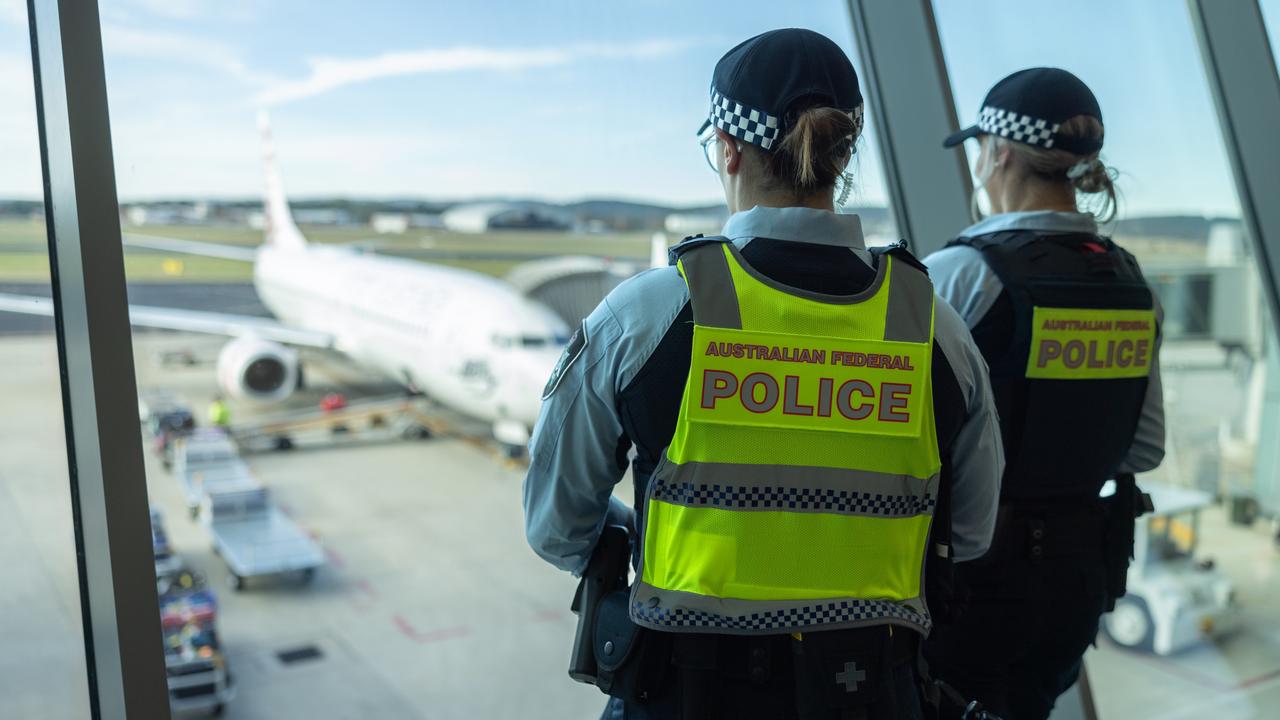Qantas ultimatum to cabin crew ‘in the public interest’: Fair Work case
The airline has told the Fair Work Commission it could struggle to operate international flights if current work conditions for cabin crew are maintained.

Qantas is preparing to force flight attendants onto a new work agreement by arguing it will struggle to provide critical services without greater efficiencies and sufficient certainty.
The Fair Work Commission will hear Qantas’s application to rip up the current cabin crew agreement (EBA10) on Thursday, after a new pay deal was rejected by 97.4 per cent of long-haul flight attendants.
In order to succeed, Qantas must demonstrate the move is not contrary to the public interest.
The airline took the so-called nuclear option of lodging the application last week, in an effort to force 2500 cabin crew to accept the new deal with more flexible rostering arrangements and a two-year pay freeze.
In its written application, Qantas said terminating the agreement would give the airline the ability to manage its operations in a post-Covid world by removing inefficiencies, constraints and restrictions.

“It is not contrary to the public interest (and indeed, in the public interest) that employers such as Qantas who provide critical services to the public are able to do so effectively, efficiently and with sufficient certainty including in the context of immediate and critical training and recruitment decisions,” said the application.
“Inherent in this is ensuring that such employers are not unreasonably constrained by enterprise agreements that are no longer fit for purpose.”
The application acknowledged that until a new deal was agreed to, the termination of EBA10 would have an adverse effect on cabin crew.
“Employees will lose access to a range of over-award terms and conditions of employment,” said the application.
A new four-year deal would include a 6 per cent pay rise, changes to rostering to allow greater availability of staff at short notice and more hours for some, and the end of meal allowances paid in cash at port hotels.
The Flight Attendants Association of Australia opposed the offer because of the increased uncertainty for workers under the rostering changes and below-inflation pay rise.
FAAA national secretary Teri O’Toole said what was being proposed by Qantas would have serious consequences for families and work-life balance.
In particular members were opposed to an increase in the number of days they could be called on to work at short notice in each 56-day roster period from six to nine, and 12 in special circumstances.
“As crew are saying ‘how do I organise childcare with these changes?’,” Ms O’Toole said.
In an email to flight attendants, Qantas executive manager of customer experience and operations Rachel Yangoyan said other workers had agreed to a two-year wage freeze and executives had foregone their annual bonuses for what was likely to be three years.
“We have sold land, mortgaged aircraft and raised money from shareholders to get through a crisis that will take us years to recover from – a crisis that many other airlines have simply not survived,” Ms Yangoyan wrote.
“We can offer nothing more.”
She dismissed claims the rostering changes being sought by Qantas would significantly impact the work-life balance of international cabin crew, saying they were about providing “more stability”.
“We’ve asked the Fair Work Commission to consider our termination application as quickly as possible to bring certainty for everyone,” wrote Ms Yangoyan.
“It’s unfortunate that we all find ourselves in this position. We hope there are better days ahead.”







To join the conversation, please log in. Don't have an account? Register
Join the conversation, you are commenting as Logout